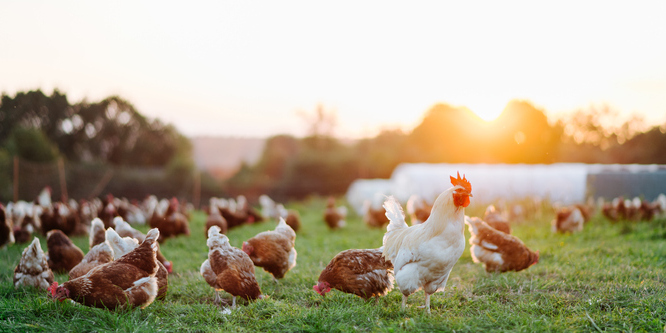
Image Source: iStock | Sonja Filitz
The U.S. Department of Agriculture has approved two companies to sell “cell-cultivated” chicken for human consumption.
The approval gives Good Meat, a division of Eat Just, and Upside Foods license to grow chicken parts from cells in a laboratory and sell them for food. Last November, the USDA announced that so-called lab-grown chicken was safe to eat.
Good Meat and Upside Foods are two of the companies that have been working on developing a lab-grown alternative to modern slaughter practices. Proponents of the technology say it provides a safe means to feed the world’s population without harm to animals and with a much lower environmental impact than traditional farming and ranching methods.
“This announcement that we’re now able to produce and sell cultivated meat in the United States is a major moment for our company, the industry and the food system. We have been the only company selling cultivated meat anywhere in the world since we launched in Singapore in 2020, and now it’s approved to sell to consumers in the world’s largest economy. We appreciate the rigor and thoughtfulness that both the FDA and USDA have applied during this historic two-agency regulatory process,” said Josh Tetrick, co-founder and CEO of GOOD Meat and Eat Just.
Good Meat said that it immediately began producing chicken for Chef José Andrés, owner of José Andrés Group, which operates more than 30 restaurants nationwide and operates under a mission “To Change the World Through the Power of Food.” The chicken supplied by Good Meat will go on the menu at one of Mr. Andrés’ restaurants in Washington, D.C. The exact location has not yet been disclosed.
“This approval will fundamentally change how meat makes it to our table. It’s a giant step forward towards a more sustainable future – one that preserves choice and life,” said Dr. Uma Valeti, CEO and Founder of Upside Foods.
Patrons at Bar Crenn in San Francisco will be the first to order Upside Foods’ chicken. The company has struck a partnership with Dominique Crenn, a three-Michelin-star chef. Upside Foods said it has an order from another source that will be revealed later.
The chicken the two companies sell may eventually come with a kosher label. The leader of Israel’s Chief Rabbinate declared in January that meat grown in labs was pareve, which means that it is not considered milk or meat and can be eaten together with either under Jewish dietary laws.

Deja una respuesta
Lo siento, debes estar conectado para publicar un comentario.